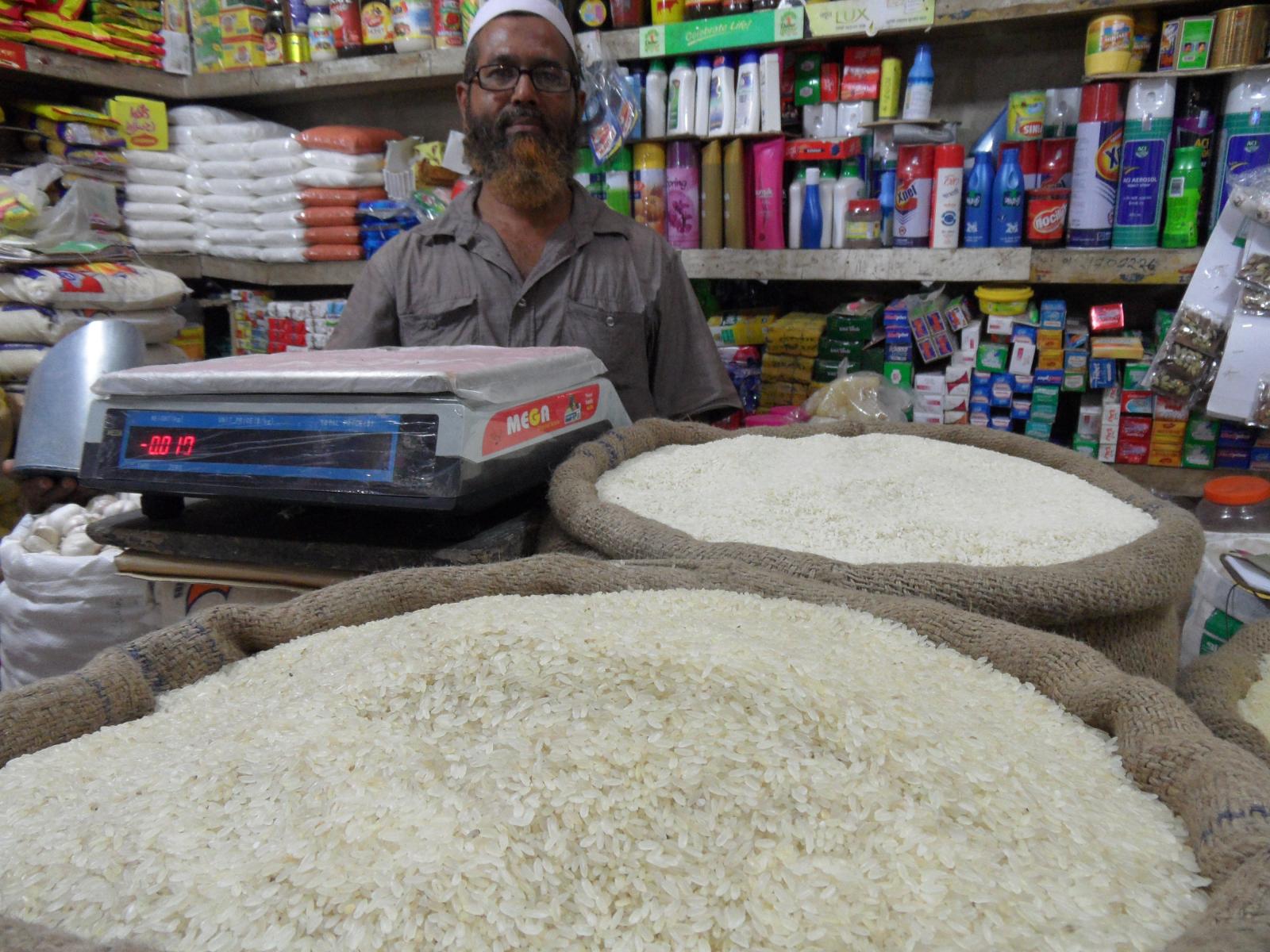The Green Revolution helped transform the South Asia region from one of food deficits to surpluses and subsequently moved millions of people out of poverty. Today, there is the opportunity to build on that success by releasing the untapped potential in the rice agri-food sector.
If South Asian farmers can improve farm productivity, increase resource-use efficiency, diversify their crops and gain better market access, then the livelihoods, nutrition, and income of millions of smallholder farmers and their families could be improved substantially.
IRRI will work in partnership with policy makers and national research and extension systems (NARES) to deliver consolidated research and education support services that will improve the efficiency, sustainability, and equity of the region’s rice-based agrifood sector and help deliver the Sustainable Development Goals (SDGs).
Challenges in South Asia
- Increasing population
- Rural to urban migration resulting in labor shortage and increased role of women in agriculture
- Fewer young people in farming
- Low incomes of many rice farming households
- Increasing economic inequality
- Need to improve resilience to climate change (droughts and floods)
- Poor nutrition of rice consumers
IRRI's strategy in South Asia
Improved yields, climate resilience, and nutritional security
In collaboration with national governments, we will accelerate the dissemination of high-yielding and stress-tolerant rice varieties, as well as introduce healthier rice varieties to address micronutrient deficiencies e.g. zinc, iron and vitamin A.
Reducing the environmental impact of rice production systems
We will develop new practices to enhance the overall sustainability of rice production systems, such as reducing greenhouse gas emissions and health risks caused by burning of rice straw. Working with public and private sector partners, we will create viable business and technology models for using rice by-products such as husks and straw to provide renewable energy services in rural areas of South Asia.
Capacity building on rice-based agri-food systems
Through the IRRI South Asia Regional Centre (IRRI-SARC) at Varanasi we will enhance knowledge and training capacity at all levels as well as enabling technology transfer and adoption for South Asian and African nations.
Inclusion of women and youth
We will work with NARES, NGO, Civils Society Organizations (CSOs) and private sector partners to enhance the inclusion of women and youth in the rice value chain for safe, dignified and viable employment and entrepreneurial opportunities.
Scaling up innovations in rice value chains
We will work closely with private seed companies, millers, agricultural machinery manufacturers, and CSOs to scale up innovations in rice value chains. We will also partner with governments to promote and accelerate expansion and dissemination of improved varieties, research technologies, and packages of science-based best practices.
Engaging with governments and policy
We will facilitate high-level policy dialogues with global stakeholders in research and development, national investors from national and state/ provincial agricultural ministries, NGOs and CSOs to help set the agricultural research and development agenda for the region.
Working with the private sector
With the increasing commercialization of agriculture in South Asia, we will strengthen our engagement with the private sector as a vehicle for delivering our mission in South Asia.
Multi-sectoral partnerships to achieve UN SDGs
We will work closely with the South Asian Association for Regional Cooperation (SAARC), Bay of Bengal Initiative for Multi-Sectoral Technical and Economic Cooperation (BIMSTEC), national governments in South Asia, and international funding agencies to focus on ending hunger, poverty, ensuring gender equality, and improving the quality of life of the South Asian population. With our decades-long partnership with NARES and other stakeholders in South Asia, we are in a unique position to leverage these relationships to help deliver these goals.
Countries where IRRI is active
Bangladesh
The partnership between Bangladesh and IRRI goes back more than five decades. IRRI's first international outreach program was in Bangladesh. In 1965, a set of 303 rice varieties was evaluated at the Savar Farm, a government-run dairy enterprise near Dhaka. Two years later, in 1967, the first widely distributed high-yielding semidwarf rice variety, IR8, was introduced into the country. Read more
India
IRRI and India have been successfully collaborating for more than five decades. India has been actively involved in IRRI's priority setting, strategic planning, scientific advising, and implementation of research across South Asia. The results of this collaboration have been outstanding and have set an example in international research collaboration. Read more
Nepal
IRRI and Nepal share over fifty years of dynamic partnership. Since 1966, IRRI has provided improved rice germplasms to Nepal. More than two-thirds of Nepal’s rice genetic improvement is attributed to IRRI’s rice germplasm contributing about 3.78 million tons of rice production worth USD 890 million annually. Read more
Sri Lanka
Rice is famed to have had a long and regal history in Sri Lanka. Its importance goes far beyond its status as a primary food source in this island nation. Synonymously, rice plays an important role in the country's cultural identity, tradition, and politics. Read more

Stress-Tolerant Rice for Africa and South Asia (STRASA)
The project Stress-Tolerant Rice for Africa and South Asia (STRASA) was started by IRRI at the end of 2007 in collaboration with AfricaRice to develop and deliver rice varieties that are tolerant to abiotic stresses for the millions of farmers in rainfed rice-growing environments in Asia and Africa.
STRASA, conceived as a 10-year project, delivered the improved varieties to at least 18 million farmers on the two continents. The project ends boasting of significant spillover effects for non-participating countries particularly on the use of developed stress-tolerant rice varieties and participation to a regional cooperation on seed exchange agreement.








